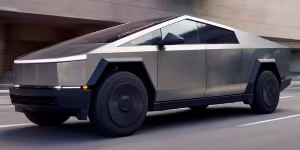Tesla Enters the Indian EV Market
Tesla has officially arrived in India by opening two showrooms — first at Bandra Kurla Complex, Mumbai, and then at Aero City, Delhi. The company plans to open more showrooms in other metro cities soon. Customers can expect Tesla cars on Indian roads by September. Media outlets have widely covered Tesla’s arrival, generating a lot of buzz, as the brand leads the global electric vehicle market.
The Challenge Ahead
However, Tesla’s journey in India has just begun. The big question is whether it can seriously impact the evolving electric vehicle (EV) segment. Domestic companies like Tata and Mahindra dominate the market, while international brands such as BYD and MG Motors compete aggressively.
Last year, India sold 105,000 EV cars, a 12% increase over the previous year. Given this momentum, Tesla will need to hit the ground running to compete effectively.
Delayed Entry and Policy Issues
Tesla initially planned to enter last year during the Bharat Mobility Global Expo 2024. Elon Musk was set to announce the launch in person, which would have created a strong media moment. However, Tesla and the Indian government clashed over the new EV policy. The policy requires companies to invest $500 million within a set time frame to qualify for lower import duties while establishing local manufacturing.
The government stood firm, so Tesla is currently entering the market through imports instead of local production.
Pricing and Market Impact
High import taxes, around 70%, make Tesla vehicles expensive in India. The company launched the Model Y in two variants: the standard Rear-Wheel Drive priced around ₹61 lakh and the Long Range Rear-Wheel Drive at ₹69 lakh. By comparison, these models cost roughly ₹32-35 lakh in the US.
Tesla’s strong brand will attract wealthy buyers and celebrities, but sales during the first couple of years will likely remain modest. Without local manufacturing, Tesla will compete as a luxury brand against models like the Mercedes-Benz EQB, BMW iX1, and Volvo EC40 — targeting a small slice of India’s EV market.
Competition and Market Segments
Tata and Mahindra dominate the ₹13-30 lakh segment, which grows rapidly. They have also built charging infrastructure and contributed to the overall EV ecosystem.
Tesla will likely remain a niche player serving elite customers for some time. Its arrival mainly marks a symbolic “foot in the door” to India’s large and growing auto market, which experts expect to become fertile ground for electric four-wheelers in the medium term.
Tesla’s Global Context and Strategy
Tesla generates about 50% of its revenue from the US and 20% from China. Recently, it faced setbacks in key markets and rising competition, especially from Chinese companies like BYD.
Given these challenges, Tesla seems to position itself close to India and prepare to act when the right opportunities arise. In doing so, the Indian EV sector gains a major global brand.

